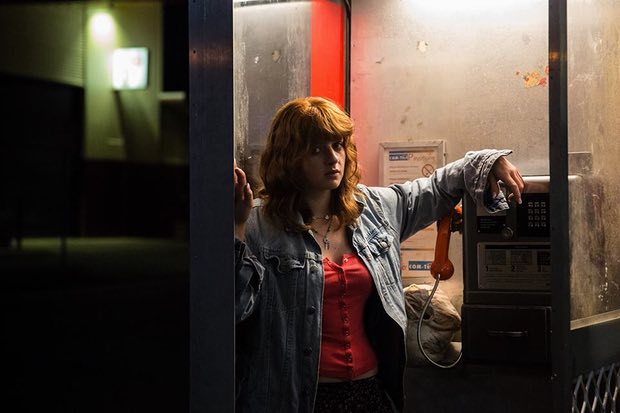Don't Tell Review – Film about Landmark Child Sexual Abuse Case Plays the Story Too Safe
By Luke Buckmaster
Litigation thrillers and courtroom dramas are not necessarily the same thing – and a movie encompassing both can do one better than the other. Don’t Tell – debut director Tori Garrett’s well made, if heavy-handed movie about speaking out in the most challenging and degrading of circumstances – is also a reminder that films depicting real-life events are in just as much danger of indulging in caricature and ham-handed dialogue as anything from the realm of pure fiction. Adapted from a non-fiction book by Queensland lawyer Stephen Roche, Don’t Tell recounts a landmark 2001 civil litigation case against the Anglican Church’s Toowoomba Preparatory School. In a cinematic context, one is tempted to peg it as a sort of Spotlight Down Under, given the obvious similarities in subject matter. Lyndal (played by Sara West) was sexually abused by a boarding master when she was 12 years old and decided in her early 20s to pursue justice. Roche (played by Aden Young) appears as a principal character who “might just be crazy enough to take the case” (the script’s words). Lyndal and Roche’s efforts had a far-reaching flow-on effect, eventually leading to a Julia Gillard-initiated royal commission into the sexual abuse of children. Garrett rolls out Australian heavyweights for small supporting roles, among them Jack Thompson (who starred in the big daddy of Australian courtroom dramas: 1980’s Breaker Morant), Rachel Griffiths, Susie Porter, Jacqueline McKenzie and Martin Sacks. Gyton Grantley appears by flashback as the abuser, Kevin Guy, who killed himself and was found with a list of the girls he abused in his breast pocket. With pasty complexion and dorky glasses, in the style of Robin Williams’ deranged loner from One Hour Photo, Grantley is creepy with a capital C – even before he starts delivering lines such as: “This morning I woke up hugging a pillow, thinking about you.” Thompson registers a surprisingly minor key as the grizzled but kindhearted older barrister Bob Myers. “You could have mentioned this at a decent hour with slightly less dramatic effect,” Myers grumbles in one scene, clad in a dressing gown after Roche arrives on his doorstep late at night to share a light bulb moment. The reverse could be said of Thompson: I thought a little more dramatic effect would have helped his performance. It feels like the director reined him in when she could have been pushing him further, returning some sizzle to the mellowed-out veteran. Don’t Tell’s knockout performer is the burned-up, tempestuous West, who perfectly gets the double-sided anger of her character: a vice for her to manage and a virtue that keeps her determined to continue. Initially the young and hot-blooded Lyndal is the recipient of a range of warnings and short speeches cautioning her about taking on the church. Her resolve is imperturbable, so these warnings are transferred to Roche. “She needs justice,” the lawyer says to Myers. Myers retorts: “She does, or do you?” The screenplay has more than its fair share of a-bit-too-perfect lines. When the court case proper begins, about 50 minutes in, Don’t Tell becomes even neater, boxing itself into a format that – despite its real-life roots – feels codified and highly familiar, like any number of films you’ve seen before. It probably doesn’t help that most people will probably know how the story ends before entering the cinema. Cinematography from Mark Wareham (who recently shot Jasper Jones, A Month of Sundays and Cleverman) deploys many shots dictated by the movement of the actors. A performer will raise their hand or walk in a certain direction, for example, and the camera follows. The technique is effective but over-used. As in the film itself, it feels a little too staid, a little too formal, a little too safe. In Don’t Tell, emotions bubble close to the surface at all times – they might have been more pronounced if the film-maker had taken more risks.
|
.
Any original material on these pages is copyright © BishopAccountability.org 2004. Reproduce freely with attribution.
